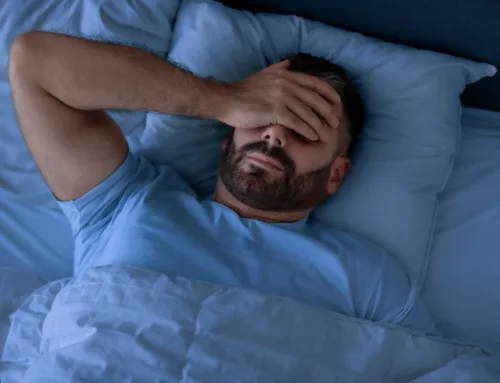Effects of Substance Use on Mental Health
Those who struggle with hopelessness often seek out drugs or alcohol to self-medicate. Moreover, someone who is caught in the vicious cycle of addiction may start feeling shame, sorrow or misery and fall into clinical depression. Regardless of which comes first, if you or someone you know is simultaneously dealing with drug addiction and depression, here’s the information you’ll want to know on the matter and what you can do about it.
Substance use and depression
Depression and substance use addiction are a dangerous combination. Either of these two conditions can lead to the onset of the other and cause lasting damage in a person’s life. The harms of addiction can worsen and contribute to symptoms of depression, and vice versa, too.
Sadly, these co-occurring disorders are extremely common, too. According to the journal Addiction Science & Clinical Practice, mood disorders (including depression and bipolar disorders) are the most commonly documented disorders among patients with substance use addictions.
While worsening symptoms of depression can sometimes happen as a side effect of substance use, sometimes the psychological distress stems directly from the drugs themselves. Depending on the type of substance use, a severe and persistent mood disturbance can result directly from the psychological effect of a drug.
How depression affects substance use
Someone who presents first with symptoms of depression may eventually struggle with a substance use disorder. Here’s why:
- An attempt to self-medicate: facing persistent sadness and a lack of interest in life wears on a person over time. It’s common for individuals to attempt to alleviate negative feelings with substances, even if the relief is only temporary and causes more issues in the long run
- Desire to feel positive emotions: depression can create a sense of apathy about life, and drugs offer quick access to pleasurable emotions, make ordinary experiences feel exciting, induce a sense of social closeness and provide heightened sexual experiences
- Genetic and neurological factors: a person who has a genetic predisposition for addiction may also be more likely to have qualities that make an addiction more likely
- Lack of treatment: someone who faces depression may be unwilling to seek treatment. While many individuals experience depression for years, the longer depression goes untreated, the worse symptoms will become and the more drastic behavior will become
- Lowered resolve: in regards to alcohol and depression, the journal ISRN Psychiatry states that depression can lower a person’s resolve to fight triggers to use
The link between depression and addiction is clear, and the damage goes both ways.
How substance use affects depression
Someone who presents with symptoms of depression may develop a substance use condition, and the reverse is true, too. If you’re caught up in the cycle of drug or alcohol abuse, here’s how it might lead to mental health concerns.
- Relationship issues: drug use often causes rifts to form between family and friends. Failing relationships or few stable support people can be a risk factor for isolation and depression
- Money problems: someone who is spending large amounts of money to sustain a drug habit will, in most cases, eventually run into money problems. Financial stress is known to contribute to mental health challenges, like depression
- Loss of personality: drug abuse takes away the most important things about a person’s life, even his or her sense of identity. When you become a slave to a drug addiction, your personality is numbed and you may feel that you have no positive qualities, when in actuality they’ve been obscured by irritability and edginess caused by drug use
- Lack of meaning: when a person’s life revolves around the cycle of getting high, going through withdrawal and getting that next fix, it’s easy to experience a loss of meaning and enjoyment in life. A lack of purpose can easily lead someone to hopelessness and depression.
- Physiological effects of drug use: it’s well known that drugs impact mood, and not just during the initial “high” period. The aftermath of the physiological effects of drugs and the pain of withdrawal can drastically affect a person’s chemical and hormonal balance. This, in turn, can be a major contributor to depression symptoms
It’s clear that depression can lead to a substance use disorder and vice versa. However, there are additional negative impacts on mental health, other than depression, that follow a drug addiction.
Additional effects of substance use on mental health
Someone who is trapped in a substance use disorder may also experience the following negative effects of substance use on mental health.
- Increased anxiety
- Increased irritability and moodiness
- Difficulty focusing
- Memory problems
- Sleep issues like insomnia
- Paranoia
- Social anxiety
- Feelings of guilt, confusion or anger
- Low energy
- Social withdrawal
- Trouble coping with distress
- Changes in eating habits
The effects of substance use on mental health are not limited to this list. The effects can be severe, too, so it’s best to get intervention as soon as possible.
Getting into treatment
If you or someone you know might be struggling with a drug addiction and depression, it’s time to get clinical help. Start your treatment today with Freedom Detox. You’ll find the compassionate care you’re looking for when you call now.










